Primary election 2023 voters guide: These are the candidates running for Pennsylvania courts
Pennsylvania Justice of the Supreme Court
Description of office: The Supreme Court of Pennsylvania is the highest court in the commonwealth and the oldest appellate court in the nation. The Supreme Court’s administrative powers and jurisdictional responsibilities are vested with the seven-member court by the Pennsylvania State Constitution and a collection of statutes known as the Judicial Code. The justice with the longest continuous service on the Supreme Court automatically becomes chief justice. Administratively, the courts within the Unified Judicial System are largely responsible for organizing their own staff and dockets; however, the Supreme Court has several committees and boards responsible for writing and enforcing rules for judges, attorneys and litigants to ensure an efficient and fair judicial review. Annually, the seven justices receive over 3,000 requests for appellate review.
Term: 10 years
Salary: $244,793
Vote for ONE.
Candidates (choose 1):
Daniel McCaffery
Party: Dem
County: Philadelphia
Occupation: Judge of the Pennsylvania Superior Court
Education: Temple University School of Law, J.D., 1991 Temple University, SCAT, B.A., 1988 Father Judge High School, 1982
Qualifications: 32 years as an attorney, trial and appellate court judge, tried more cases and presided over more litigation than any other candidate. Highly recommended by the Pennsylvania Bar, the only veteran on Pennsylvania’s appellate courts. Judge, Court of Judicial Discipline, supervising judge for Pennsylvania wiretap applications.
Campaign website: judgemccaffery.com
Campaign Facebook URL: facebook.com/McCafferyforsupremecourt
Twitter handle: @JudgeMcCaffery
Campaign Instagram URL: instagram.com/judgemccaffery/
Q: Pennsylvania’s three coequal branches of government — executive, legislative and judicial — each act as a check on the power of the others. In practical terms, what does this relationship of checks and balances mean to you?
A: In its most general terms, as it pertains to the question, the court has a duty to ensure the constitutional rights of the people are appropriately applied and protected. I would describe my approach to constitutional interpretation as “living constitution” — meaning that the constitution was intentionally drafted using broad language to allow its concepts to evolve with changing societal conditions. As to my approach to interpreting rules, legislation and statutes, I would describe myself as a textualist in that I attempt to give a common sense meaning and will give the intent to apply a reasonable analysis to interpret any ambiguous word or provision.
Q: What criteria would you consider in deciding a case that could affect long-standing precedent?
A: Every case must be considered based on the facts of the individual case, the laws pertaining to the case and were the appropriate constitutional rights and protections fairly applied to the people and case in question.
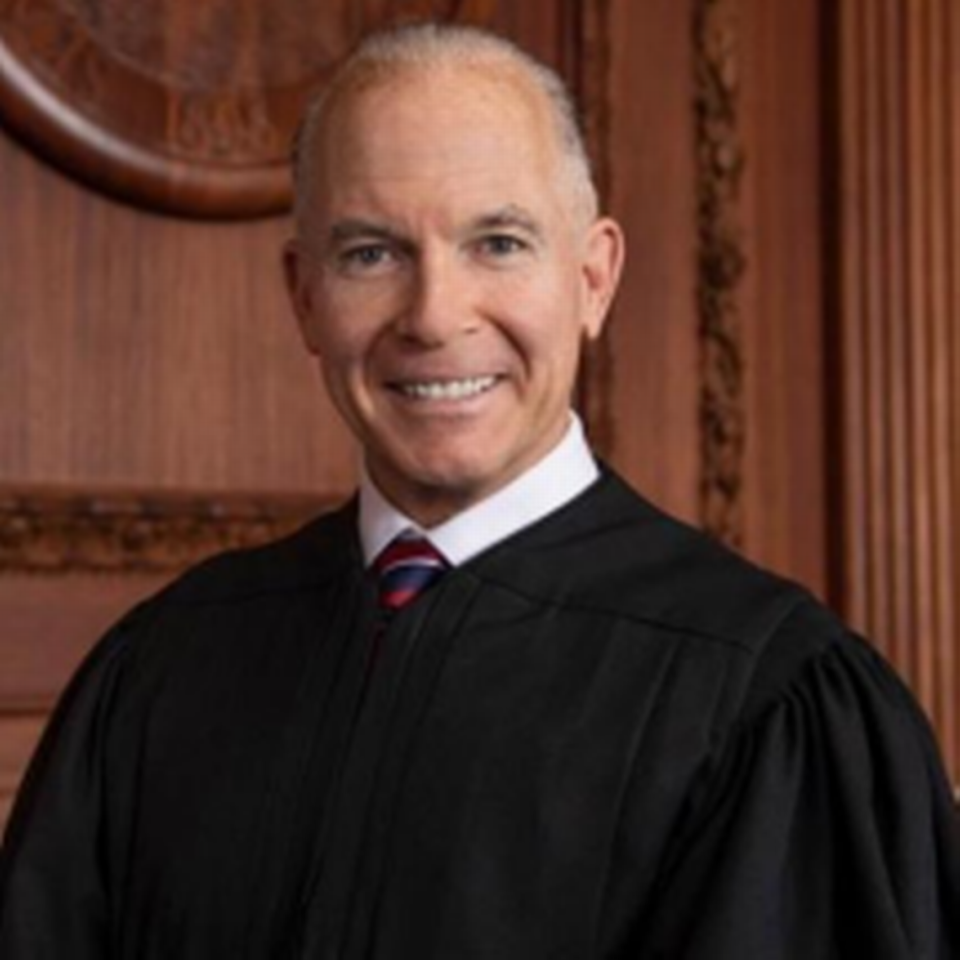
Debbie Kunselman
Party: Dem
County: Beaver
Occupation: Judge of the Superior Court of Pennsylvania
Education: J.D. Notre Dame Law School; B.A. Penn State
Qualifications: 17 years of judicial experience: 12 years as a trial court judge in Beaver County and 5 years as a state appellate court judge. Experience handling civil, criminal, family and juvenile cases; 8 years as chief county solicitor
Campaign website: kunselmanforpa.com
Campaign Facebook URL: facebook.com/JudgeDebbie17
Q: Pennsylvania’s three coequal branches of government — executive, legislative and judicial — each act as a check on the power of the others. In practical terms, what does this relationship of checks and balances mean to you?
A: The relationship of checks and balances between the three branches of government means that each branch must respect the authority of the other branches and act within the authority given to them. For example, the legislature has the authority to enact laws. However, those laws cannot infringe upon the rights guaranteed by the federal or state constitutions. If they pass such a law, the judicial branch can strike it down as unconstitutional. However, if the law comports with the constitution, judges are obligated to apply the law as it is written. Likewise, absent emergencies, the executive branch needs probable cause and a warrant from a judge before conducting a search. In this way, judges protect the right to privacy.
Q: What criteria would you consider in deciding a case that could affect long-standing precedent?
A: Usually, overruling long-standing precedent is warranted when (and only when) a precedent is “manifestly absurd or unjust” as in Brown v. Board of Education. The U.S. Supreme Court in Ramos v. Louisiana gives three guides I would consider: 1) Is the prior decision not just wrong, but grievously or egregiously wrong? In deciding this, I would look at the quality of the precedent’s reasoning, consistency and coherence with other decisions, changed law or facts, and workability. 2) Has the prior decision caused significant negative jurisprudential or real-world consequences? 3) Would overruling the prior decision unduly upset reliance interests? These considerations set a high standard and require much deliberation before changing precedent.

Patricia A. McCullough
Party: Rep
County: Allegheny
Occupation: Statewide appellate court judge-Commonwealth Court of Pennsylvania
Education: B.A. University of Pittsburgh, magna cum laude; J.D. University of Pittsburgh School of Law
Qualifications: Judge, Pennsylvania Commonwealth Court 12+ years ruling on cases that go directly to Pennsylvania Supreme Court; trial judge, Allegheny County Court of Common Pleas; assistant general counsel, University of Pittsburgh.; private practice attorney; director Catholic Charities; chair Allegheny County Board of Property Appeals; chair Appellate Court Procedural Rules Committee
Campaign website: judgemccullough4supremecourt.com
Q: Pennsylvania’s three coequal branches of government — executive, legislative and judicial — each act as a check on the power of the others. In practical terms, what does this relationship of checks and balances mean to you?
A: These separate but equal branches of government have distinct powers. The legislative branch makes the law, the executive branch enforces the law and the judiciary is to interpret the law. This means that courts are not to “legislate from the bench.” Judges should apply the rule of law and interpret the law and the constitutions of the United States and Pennsylvania as written, and reign in the other branches of government if they overstep their constitutional bounds. Thomas Jefferson warned that if judges interpret the law to be what they want, the Constitution would be a “mere thing of wax in the hands of the Judiciary, which they may twist and shape into any form they please.” Constitutional rights are protected with proper separation of powers.
Q: What criteria would you consider in deciding a case that could affect long-standing precedent?
A: While the concept of stare decisis is traditionally applied by judges in assessing cases, courts are at times confronted with whether to overrule prior precedent. Criteria to be carefully considered includes inconsistency with related decisions, erroneous or incomplete facts, misinterpretation of law or the unconstitutionality of prior precedent. Brown v. Board of Education is a long-standing example of the U.S. Supreme Court overruling prior precedent on the basis that it violated the Constitution, specifically the equal protection clause of the 14th Amendment. Brown ended the unconstitutional precedent of “separate but equal” in Plessy v. Ferguson. The U.S. Supreme Court focused on constitutional reasons in other cases.
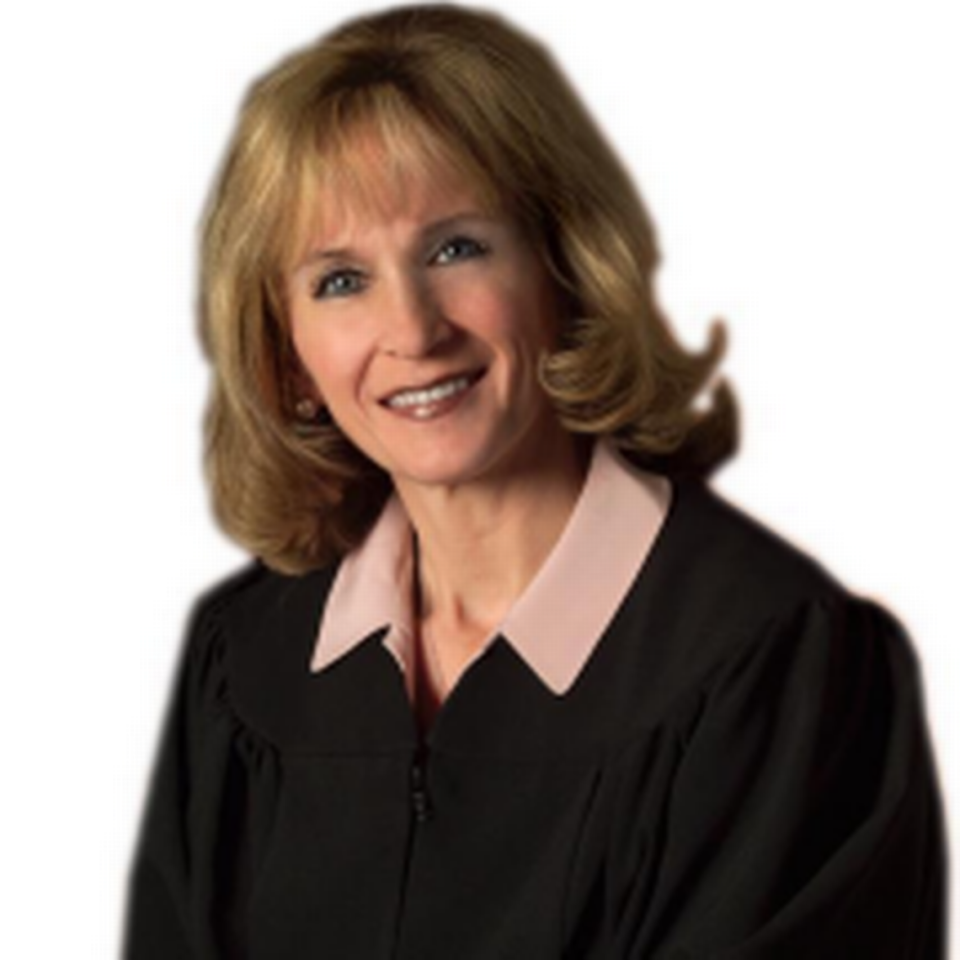
Carolyn Carluccio
Party: Rep
County: Montgomery
Occupation: Court of Common Pleas judge
Education: Dickinson College, Widener University School of Law
Qualifications: First female president judge of the Montgomery County Court of Common Pleas serving in the criminal, family and civil court benches. Montgomery County chief deputy solicitor, director of human resources, chief public defender, assistant United States attorney.
Campaign website: judgecarluccio.com
Campaign Facebook URL: facebook.com/judgecarluccioforsupremecourt
Twitter handle: @JudgeCarluccio
Campaign Instagram URL: instagram.com/judgecarluccioforsupremecourt/
Q: Pennsylvania’s three coequal branches of government — executive, legislative and judicial — each act as a check on the power of the others. In practical terms, what does this relationship of checks and balances mean to you?
A: Our system of checks and balances is vital to our democracy and should be carefully guarded. We must ensure one branch does not overstep its authority. For the executive branch, it could be excessive executive orders which can circumvent legislative powers. For the judiciary, it is legislating from the bench which can also circumvent legislative powers. The judiciary also has the duty of ensuring that legislative and executive actions do not overstep their constitutional roles. It’s critical that the judiciary only applies the law as it is written in the Pennsylvania and United States Constitutions. Inappropriate actions taken by the executive branch and even the judiciary takes power from our legislature which is closest to the people.
Q: What criteria would you consider in deciding a case that could affect long-standing precedent?
A: In deciding a case that could affect long-standing precedent, just as in any case that comes before me, I will apply the law as it is written in the constitution. Justices of the Pennsylvania Supreme Court must not allow themselves to be swayed by the media, executive or legislative branches, and certainly not by the popular opinion of the day. Even our own personal beliefs must be tempered to ensure that the judiciary remains unbiased and only make rulings based on the law.
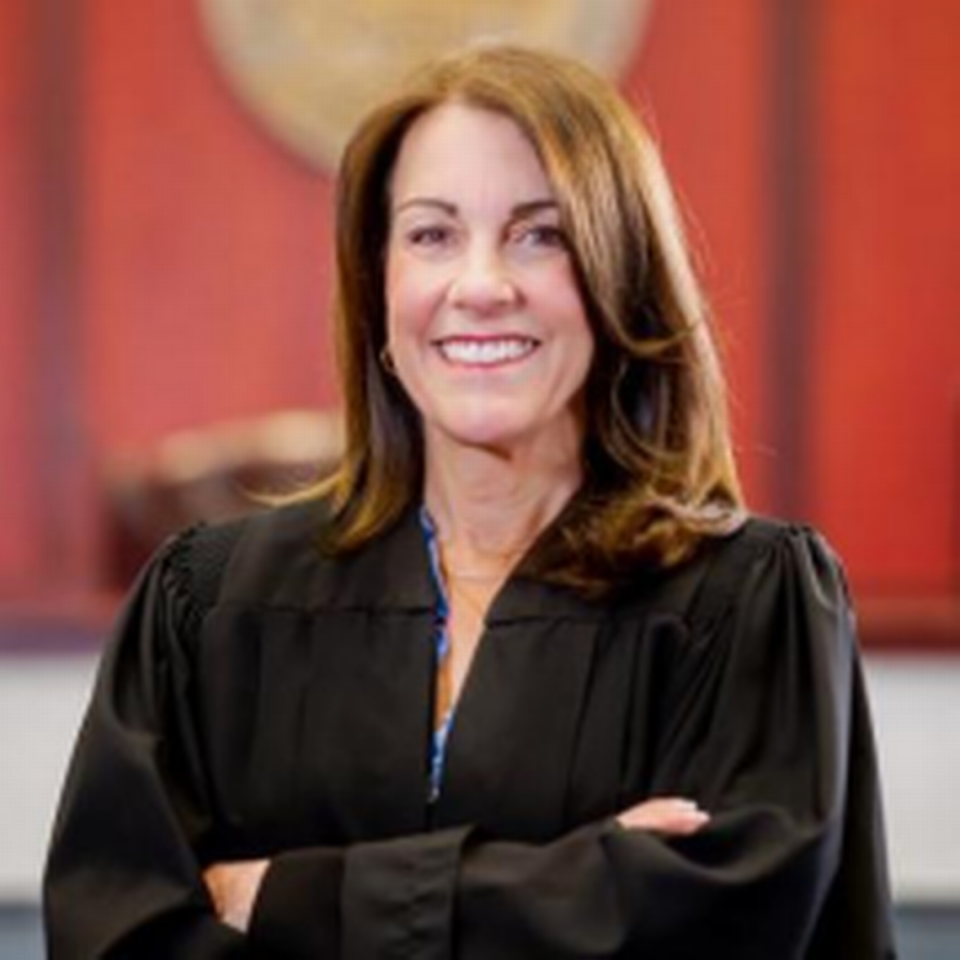
Pennsylvania Judge of the Superior Court
Description of office: The Superior Court is one of Pennsylvania’s two statewide intermediate appellate courts. This court, established in 1895, reviews most of the civil and criminal cases that are appealed from the Courts of Common Pleas in the commonwealth’s 67 counties. The Superior Court consists of 15 judges. The president judge is elected to a five-year term by his/her colleagues. A large number of appeals flow to the Superior Court from the trial courts. Generally, appeals are heard by panels of three judges sitting in Philadelphia, Harrisburg or Pittsburgh. The court often is the final arbiter of legal disputes. Although the Supreme Court may grant a petition for review of a Superior Court decision, most petitions are denied, and the ruling of the Superior Court stands.
Term: 10 years
Salary: $230,974
Vote for not more than TWO.
Candidates (choose 2):
Pat Dugan
Party: Dem
County: Philadelphia
Occupation: President judge and Veterans Court judge
Education: Juris Doctorate Rutgers School of Law
Qualifications: Judge 16 years, 4 years president judge (elected by a vote of 27 judges), 13 years attorney focused on criminal defense and child advocacy, 23 years Army (and Reserves) infantry paratrooper, Civil Affairs, JAG with 5 years overseas, started a Veterans Court 2010, married father of 6
Campaign website: judgepatdugan.com
Campaign Facebook URL: facebook.com/judgepatdugan
Q: Pennsylvania’s three coequal branches of government — executive, legislative and judicial — each act as a check on the power of the others. In practical terms, what does this relationship of checks and balances mean to you?
A: The concept of the three branches of government is the foundation for our republic and our commonwealth, as the separation of powers assures a fair and equal system of checks and balances, as it prevents overreach by any one branch over the other two. It is the court’s obligation to interpret the laws and acts of the executive and legislative branches. It is the court’s obligation to interpret laws, and not legislate from the bench, but to umpire and call balls and strikes fairly and independently.
Q: What criteria would you consider in deciding a case that could affect long-standing precedent?
A: I believe that a prior court’s precedent should be given serious consideration to remain in place and in effect, however that is not set in stone. Before a court reverses any previous decisions, the reviewing court must take into account whether the decision was poorly reasoned, whether there has been a change in the statutory law, review of any intervening events or circumstances, and there is legal justification to overrule prior precedent. It is not a decision to be taken lightly and any change in the law must not undermine the public’s confidence in the judicial system and must maintain the integrity of the judicial system.
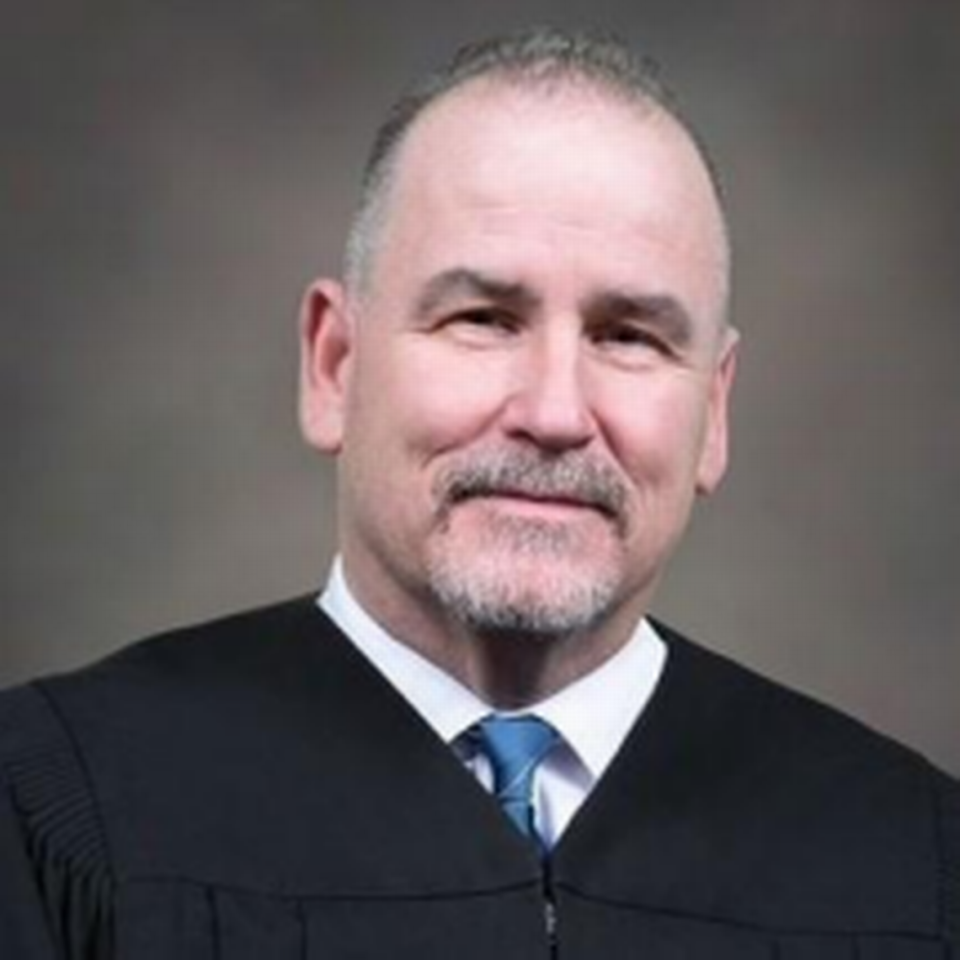
Timika Lane
Party: Dem
County: Philadelphia
Occupation: Judge
Education: Howard University - Bachelor of Arts, Rutgers Law School - Doctor of Law (J.D.)
Qualifications: Elected in 2013 to the Philadelphia Court of Common Pleas and immediately assigned to one of the busiest trial divisions in Pennsylvania. Judge Lane has presided over thousands of jury and bench trials and authored over 100 judicial opinions. She currently serves in the civil division.
Campaign website: judgelaneforpa.com
Campaign Facebook URL: facebook.com/LaneforSuperiorCourt
Campaign Instagram URL: instagram.com/laneforsuperiorcourt/
Q: Pennsylvania’s three coequal branches of government — executive, legislative and judicial — each act as a check on the power of the others. In practical terms, what does this relationship of checks and balances mean to you?
A: Checks and balances are an integral part of our government, essential to ensuring that no one branch can overpower its boundaries. The role of the judicial branch ensures that the legislative and executive branches maintain constitutional rights within the law, furthering that justice be equally, effectively and lawfully maintained and upheld. In short, checks and balances are critical to a functioning government and must be maintained.
Q: What criteria would you consider in deciding a case that could affect long-standing precedent?
A: Presiding a case in which in theory could affect a long-standing precedent must be weighted carefully and with respect to the past precedent. Long-standing precedents are not without fault, and throughout history the judicial system has seen changes occur to long-standing precedents for better and for worse. It is through this evolution, as society changes and laws are adapted to those changes that consideration of both the changes in the legal system and society should be considered, as well as aforementioned respect to the long-standing precedent and whether its reasoning still stands solid within the judicial and societal systems.
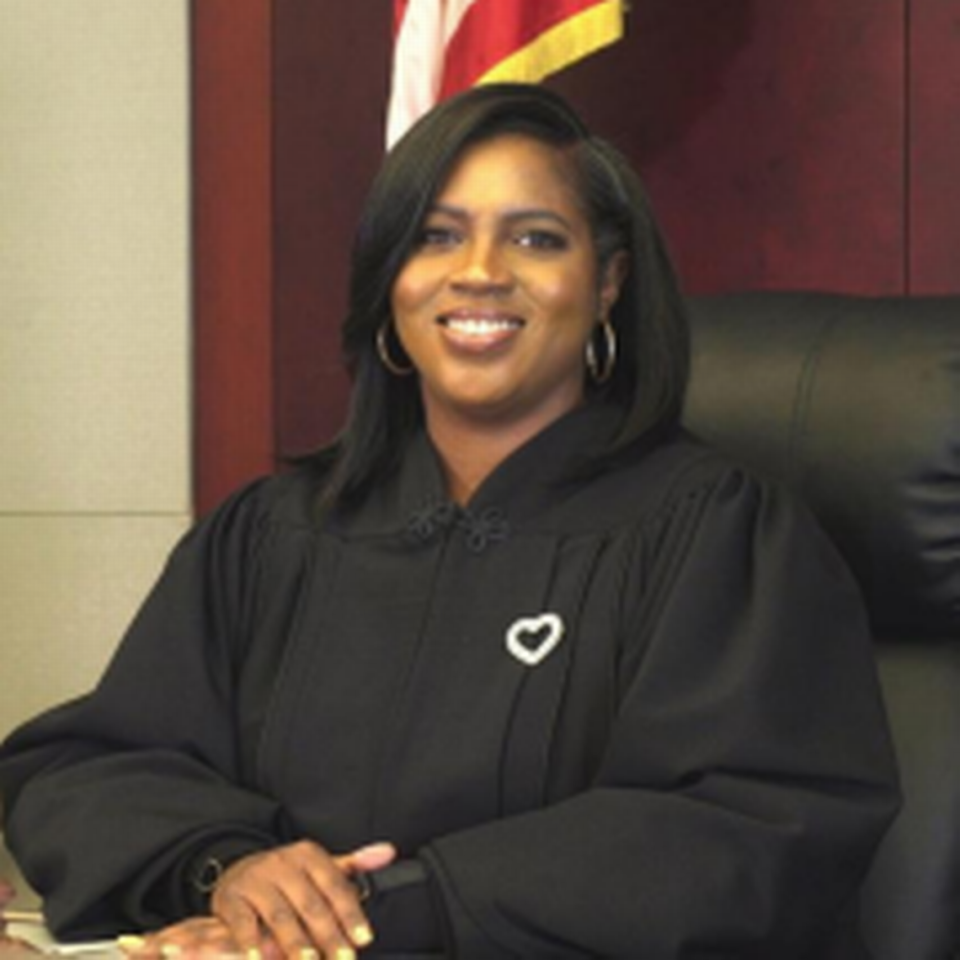
Jill Beck
Party: Dem
County: Allegheny
Occupation: Commercial litigator and appellate attorney
Education: B.A. in criminal justice - The George Washington University (cum laude graduate); J.D. - Duquesne University School of Law (cum laude graduate)
Qualifications: Jill has practiced in every area the Superior Court hears, has practiced in the Superior Court and appellate courts across the country, and spent 10 years on the other side of the bench as a law clerk — 6 on the Superior Court, 4 on the Supreme Court — where she drafted over 500 decisions.
Campaign website: JillBeck.com
Campaign Facebook URL: facebook.com/electjillbeck
Twitter handle: @ElectJillBeck
Campaign Instagram URL: instagram.com/electjillbeck
Q: Pennsylvania’s three coequal branches of government — executive, legislative and judicial — each act as a check on the power of the others. In practical terms, what does this relationship of checks and balances mean to you?
A: The judiciary is a separate but coequal branch of government. It is not the role of the court to legislate, but neither is it permissible for the court to serve as a rubber stamp for the legislative and executive branches of government (or the courts below). Appropriate deference to these bodies must be given when reviewing and interpreting their work, but it is solely in the court’s purview to determine the constitutionality of the measures taken and the legal correctness of their actions. The court serves a critical role of interpreting our statutes and our constitutions (federal and state), which must be viewed in terms of the intent of the drafters at the time of their passage as well as the evolving standards of decency of our society.
Q: What criteria would you consider in deciding a case that could affect long-standing precedent?
A: The decision to overrule precedent, particularly long-standing precedent, should not be taken lightly. Factors to consider include, but are not limited to, the correctness of the prior reasoning, its consistency with related precedent, changes in the law and society subsequent to the decision, and the level of reliance on the precedent by the legal system and the public.

Maria Battista
Party: Rep
County: Clarion
Occupation: Attorney/executive
Education: Clarion University, B.S.; Westminster College, M.Ed.; Ohio Northern University, J.D.; University of Pittsburgh, Ed.D.
Qualifications: 15+ years experience in civil, criminal and administrative law; former assistant district attorney; former attorney with the Gov. Corbett administration; served as an administrative hearing officer where I presided over hundreds of hearings and issued hundreds of administrative decisions.
Campaign website: BattistaForJudge.com
Campaign Facebook URL: facebook.com/BattistaForJudge
Q: Pennsylvania’s three coequal branches of government — executive, legislative and judicial — each act as a check on the power of the others. In practical terms, what does this relationship of checks and balances mean to you?
A: The Framers’ purpose in dividing power between the three branches of government was to ensure that no branch of government became too powerful. James Madison’s wisdom in Federalist 51 was to create a check against the authority of a single branch of government, sharing the decision-making power of the new federal government. For Pennsylvania, this model of separation of powers has created its own form of checks and balances between our three coequal branches. In practical terms, this has empowered the courts, particularly the appellate courts, to better protect the rights of the people of this commonwealth. By serving as a check against the executive and legislative branches, the judiciary serves to safeguard against abuses by either.
Q: What criteria would you consider in deciding a case that could affect long-standing precedent?
A: Stare decisis, a Latin term which means “let the decision stand,” or “to stand by things decided,” is a central tenet of the American legal system. This doctrine highlights the importance of precedent in our legal tradition. Applying precedent to the particular facts of a case is a way to provide predictability and consistency in the law. While I cannot speak directly about how I would rule in any case that may appear before me, precedent may be used as a guide, as well as the law as it has been written and the particular facts of a case. In some instances, the issue of constitutionality may be raised by the parties.

Harry F. Smail Jr.
Party: Rep
County: Westmoreland
Occupation: Judge
Education: Grove City College Class of 1988 Duquesne School of Law Night School Class of 1997
Qualifications: 14 years as a practicing attorney and nearly 9 years as sitting judge in Westmoreland County
Campaign website: VoteJudgeSmail.com
Q: Pennsylvania’s three coequal branches of government — executive, legislative and judicial — each act as a check on the power of the others. In practical terms, what does this relationship of checks and balances mean to you?
A: The Founders in their wisdom established a system of checks and balances as an attempt to ensure that no branch of our government could have unbounded power. Our system is based on on the freedom of our people and these checks and balances ensure that is difficult to pass laws or regulations that can curtail that freedom. Our constitution is our guiding light and any branch that strays from that document can be quickly put in line with it by another branch. It is the judiciary’s role, as the only branch to not face regular election, to ensure that the constitution is being adhered to by intermediary courts and by the the legislative and executive branches.
Q: What criteria would you consider in deciding a case that could affect long-standing precedent?
A: My guiding principle when deciding a case is the text of the constitution and the intent of a statute when applying that statute in the course of a case. Precedent or stare decisis is critical in this review. Stare decisis is critical in providing predictability and stability to the courts. I leave open the possibility that a court must at times correct previous encroachments by the judiciary relative to constitutional review and deviation of the facts. I believe it it is a heavy burden to demonstrate such encroachments when weighing prior precedents.
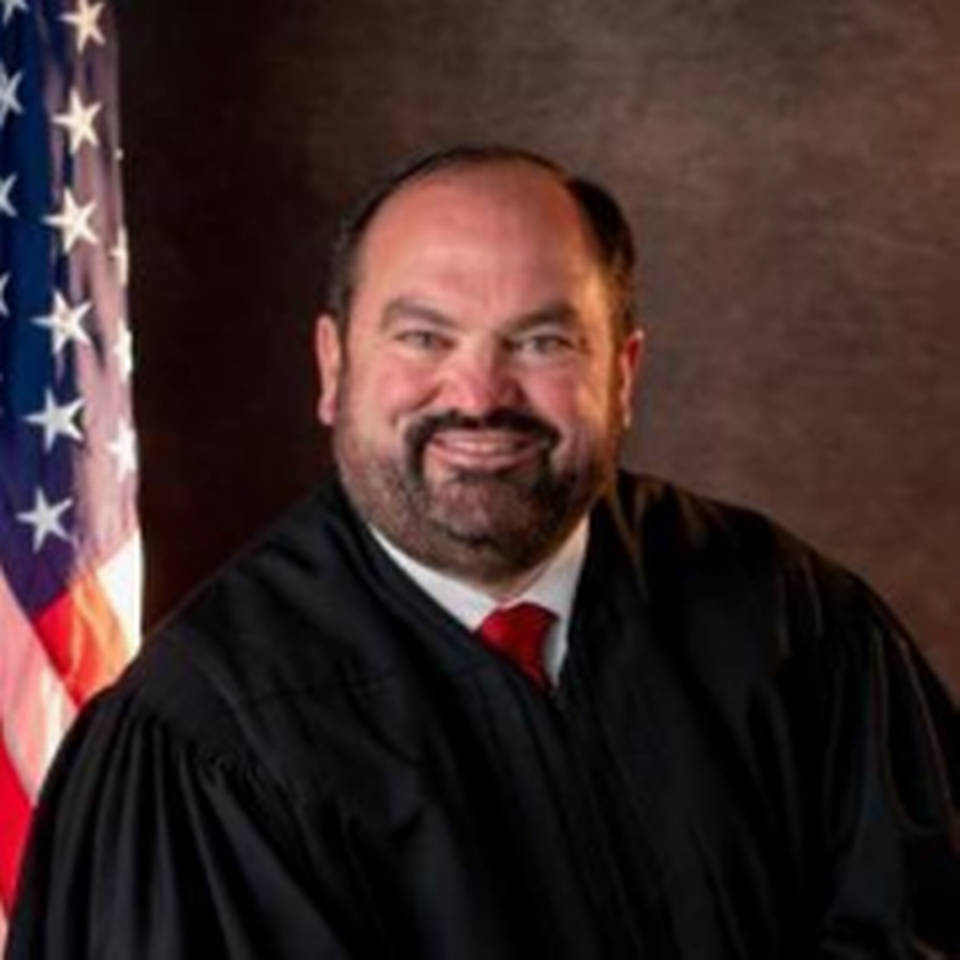
Pennsylvania Judge of the Commonwealth Court
Description of office: The Commonwealth Court is one of Pennsylvania’s two statewide intermediate appellate courts. This court, established in 1968, is unlike any other state court in the nation. Its jurisdiction generally is limited to legal matters involving state and local government and regulatory agencies. Litigation typically focuses on subjects such as banking, insurance, utility regulation and laws affecting taxation, land use, elections, labor practices and workers’ compensation. The Commonwealth Court also acts as a court of original jurisdiction, or a trial court, when lawsuits are filed by or against the commonwealth. The Commonwealth Court is made up of nine judges. The president judge is elected to a five-year term by his/her colleagues. Generally, appeals are heard by panels of three judges sitting in Philadelphia, Harrisburg or Pittsburgh.
Term: 10 years
Salary: $230,974
Vote for ONE.
Candidates (choose 1):
Matt Wolf
Party: Dem
County: Philadelphia
Occupation: Judge
Education: B.S. political science, LeMoyne College, J.D., Loyola University School of Law, numerous judicial education training courses.
Qualifications: The only sitting judge in the race. 25 years of civil rights trial experience. 5 years plus of judicial experience, with a majority of that as a supervising judge. 20 years of military experience, 17 as an Army JAG, awarded Bronze Star Medal, service in Iraq and Afghanistan.
Campaign website: judgemattwolf.com
Twitter handle: @JudgeMattWolf
Q: Pennsylvania’s three coequal branches of government — executive, legislative and judicial — each act as a check on the power of the others. In practical terms, what does this relationship of checks and balances mean to you?
A: The rule of law. Each branch of government serves as a check on the others. Legislatures pass laws, sometimes in reaction to judicial decisions and executive actions. Courts interpret the law and the facts and the executive essentially carries out the functions of the government, subject to the laws as interpreted by the courts. People who serve as elected officials usually take an oath of office to uphold the laws and the state and federal constitutions. I take such oaths seriously and would commit to upholding the law, as should each member of the other branches of government.
Q: What criteria would you consider in deciding a case that could affect long-standing precedent?
A: It depends on the case, the facts and the law. This question cannot be answered in vacuum. There are antiquated decisions in common law that are long-standing precedent which call to be overturned such as the Supreme Court’s 1896 Plessy v. Ferguson decision which upheld the legality of racial segregation in America. It took 58 years for that case to be overturned in Brown v. Board of Education of Topeka. Some long-standing precedent should be overturned such as the “separate but equal” line of cases as an example. Other long-standing precedent should be respected, particularly as it relates to the preservation and recognition of fundamental constitutional rights.
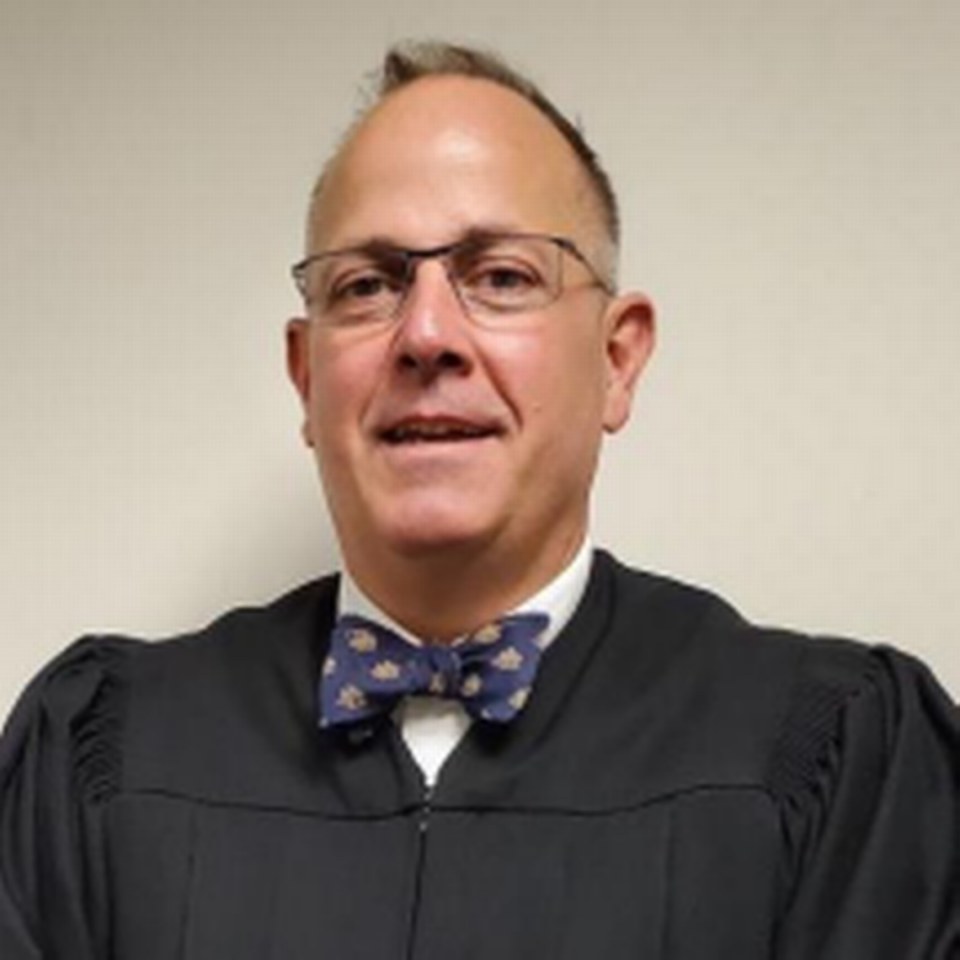
Bryan Neft
Party: Dem
County: Allegheny
Occupation: Attorney
Education: B.A., political science, University of Pennsylvania 1986; J.D. Boston University School of Law, 1989
Qualifications: I have practiced law for 33 years. I was a law clerk for the Honorable William F. Cercone of the Pennsylvania Superior Court. I have practiced in 30 Pennsylvania counties and all of the Pennsylvania appellate courts including the Commonwealth Court.
Campaign website: bryanneft.com
Campaign Facebook URL: facebook.com/bryanneft
Twitter handle: @BryanNeft
Campaign Instagram URL: instagram.com/votebryanneft
Q: Pennsylvania’s three coequal branches of government — executive, legislative and judicial — each act as a check on the power of the others. In practical terms, what does this relationship of checks and balances mean to you?
A: Each branch of government has a role in limiting overreach by a coequal branch of government. In order for the judiciary to serve as a check on the legislative and executive branches, the judiciary must be independent and allowed to decide cases brought to it without fear of reprisal or retribution. Courts have authority within their jurisdiction to interpret laws and the constitution. It is within the province of the the Legislature and the executive branches to change the law if a court ruling creates an unintended result.
Q: What criteria would you consider in deciding a case that could affect long-standing precedent?
A: The Commonwealth Court may not alter long-standing precedent of the Pennsylvania Supreme Court. However, it can revisit its own decisions, and it can review decisions of a Commonwealth Court judge sitting as the trial judge hearing a case in the court’s original jurisdiction. Such a review would require a thorough understanding of the history of the precedent, why it came into being and why it is being challenged as unsound.
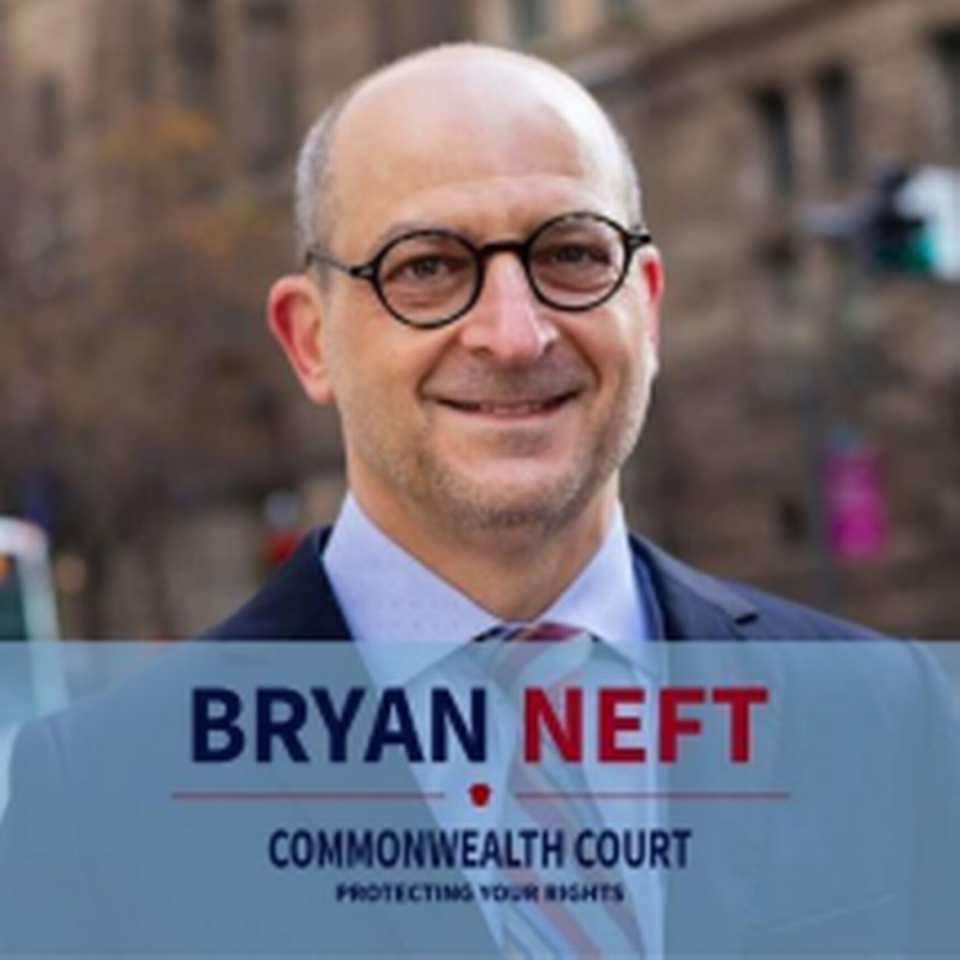
Josh Prince
Party: Rep
County: Berks
Occupation: Attorney at Prince Law Offices PC and Civil Rights Defense Firm PC
Education: Graduated with honors from McGill University in 2004 - Bachelor of Arts, double major in political science and world religions; Widener Law School 2006-2009 - Juris Doctorate, graduated cum laude and as a member of Law Review
Qualifications: I’ve spent my 13-year career defending our civil rights in the state and federal courts. Beyond having successfully litigated numerous appeals in the Pennsylvania courts, including before the Pennsylvania Supreme Court, in just the past 4 years, I’ve successfully litigated 8 cases before the Commonwealth Court.
Campaign website: PrinceForJustice.com
Campaign Facebook URL: facebook.com/PrinceForPA
Twitter handle: @PrinceForPA
Campaign Instagram URL: instagram.com/princeforpa/
Q: Pennsylvania’s three coequal branches of government — executive, legislative and judicial — each act as a check on the power of the others. In practical terms, what does this relationship of checks and balances mean to you?
A: It is the constitutionally mandated and necessary separation of powers to ensure that no one branch of government becomes too powerful or usurps the power of the people. We have, unfortunately, in recent times seen the harmful effects of when branches of government overstep their constitutionally limited boundaries. For example, when a judge legislates from the bench — thereby usurping the powers of the executive and legislative branches — the constitutionally mandated separation of powers is violated and the people’s confidence in the judiciary is eroded. This is why it is imperative that we only elect judges who will uphold the law as written and constitution as intended, without consideration for one’s personal views or beliefs.
Q: What criteria would you consider in deciding a case that could affect long-standing precedent?
A: As litigants and the legal community must be able to rely on precedent to understand their rights and obligations, it is imperative that precedent only be overturned where a manifest justice has occurred and necessitates correction, such as the abhorrent decision in the Dred Scott case, and not where the overturning of precedent would be for political or other reasons. Where appropriate, the criteria I would consider are the quality of the reasoning for the past decision, consistency of the the existing precedent with related decisions, legal developments since the past decision that shed new light on the existing precedent and what is the reasonable implementation of the new precedent within the legal system and its impact moving forward.

Megan Martin
Party: Rep
County: Cumberland
Occupation: Attorney
Education: Juris Doctor, May 1994, Widener University School of Law, Harrisburg; Bachelor of Arts, June 1991, University of Delaware, Newark, DE
Qualifications: I am honored to be endorsed by the Pennsylvania Republican Party and recommended by the Pennsylvania Bar Association. I also have the unique distinction of having served in all 3 branches of our state government and as an attorney for the U.S. Navy. My qualifications stand alone in the race for Commonwealth Court.
Campaign website: meganmartinforpa.com
Campaign Facebook URL: facebook.com/MeganMartinforPA/
Campaign Instagram URL: instagram.com/meganmartinforpa/
Q: Pennsylvania’s three coequal branches of government — executive, legislative and judicial — each act as a check on the power of the others. In practical terms, what does this relationship of checks and balances mean to you?
A: I respect the very different yet equally important roles of the three branches. When it comes to our judges, the people deserve to have judges who are fair and impartial, respect and defend the rule of law, protect our constitutional rights and freedoms, apply the law as it was written by our General Assembly, and who hold government accountable because government must follow the law, too. Our judges must be exemplary public servants who act in the public’s interest, not to further any political agenda or their own personal agenda. Judges must not make policy decisions from the bench that are reserved for our elected representatives to make. We need our judges to be independent as our constitution created them to be. I will be that judge.
Q: What criteria would you consider in deciding a case that could affect long-standing precedent?
A: Judges should approach every case keeping in mind their oath to support, obey and defend the constitution. The constitution should be their North Star. Judges should apply the law as it was written by the General Assembly. Judges should not be influenced by public opinion or pressure; they should follow the law. Precedent exists to maintain the rule of law. Defending the rule of law helps promote a world without chaos. It gives consistency to our judicial decision-making process. It ensures that individuals in similar situations are treated alike rather than being subject to the personal views of a particular judge. I respect the constitution and rule of law. I respect precedent. I will continue to do so as a judge on our Commonwealth Court.


